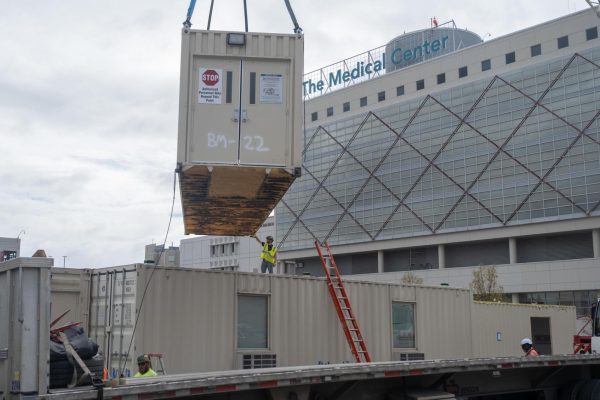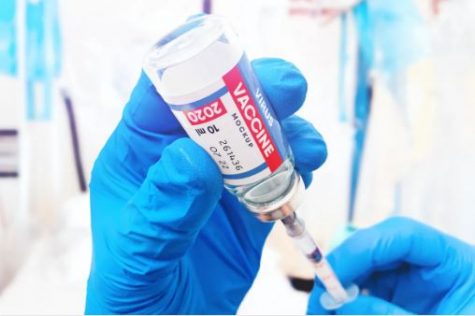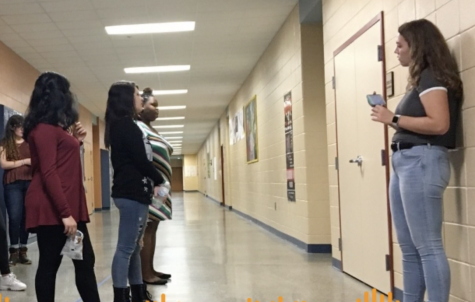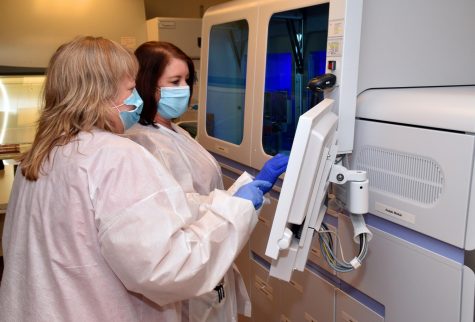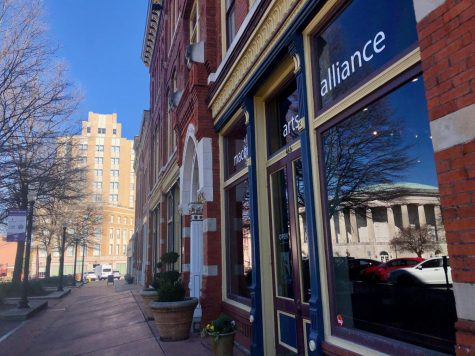How To Get A Coronavirus Test In Georgia
Testing performed by a private lab in a church parking lot in Macon. Testers usually recommend breathing through the mouth as the swab goes to the back of the nasal cavity.
Gov. Brian Kemp has said that any Georgian, regardless of their coronavirus symptoms, is now to encouraged get a test for the virus. What maybe isn’t so obvious is exactly how you go about finding a test.
The good news is that getting in the pipeline for a coronavirus test is a matter of a few steps.
If I’m not sick, why get tested? Aren’t I wasting a test?
If there were a treatment for COVID-19, then it would make sense to restrict testing to sick people. That way you wouldn’t waste the treatment. But, as of yet, there is no such treatment.
That leaves isolating the infected so they can’t infect others, through social distancing and quarantining, as the best medicine for slowing the virus spread.
Plus, people can have the virus and spread it while not sick themselves. These are asymptomatic carriers. The only way to find them is through more testing.
The World Health Organization and others also say there’s a percentage of positive tests which, once reached, suggests researchers are getting a good handle on where a disease is in a community. For coronavirus, the experts say 10% of tests performed coming back positive would be a good signal.
Right now, a little more than 13% of Georgia tests are coming back as positive. Though that number is falling, there is still statistically much to learn.

The World Heath Organization and others recommend a target of 10% of coronavirus tests performed being returned as positive as a signal health care workers have a start on containing the virus.
I’m ready to be tested. Where do I start?
Testing is free from health departments and other state government providers. Because of a provision in the federal CARES Act, it will be free from many private labs, too.
From a state-run lab, the process will begin with a conversation with a healthcare provider who, even now with testing for the asymptomatic, will need to provide you a test referral.
Kemp talks a lot about the Augusta University Telehealth app for smart phones. In both the Apple and Android stores, you will find it called the AU Health ExpressCare app. Its role is to facilitate that first conversation with a healthcare provider.
Once installed, the app will require you to create an account and login. Once that’s done, you will be presented with a menu of healthcare workers, one of whom you can select for a video chat health screening. They will ask you about your coronavirus symptoms and any underlying conditions you may have before referring you for a test, but again, none of that should keep you from getting the referral.
Or you could call your local health department. The Georgia Department of Public Health has a list of phone numbers for all of them, wherever you are in the state. One you are connected to your health department, they will ask the same questions you would be asked over video chat from the AU app.
Then in either case, once you have a referral, someone will call you after your screening to set up your test time.
The processes seem very similar. Why would I pick the app over a phone call or vice versa?
Success in finding a lab near you may vary between the app and calling your health department on the phone.
From Macon, an attempt to secure a test on the AU app yielded referrals to testing sites in Atlanta, Augusta and Albany. In short, no closer than 100 miles.
Meanwhile, a call to the North Central Health District led to a same day test. Others have reported longer waits of a day or two for an appointment through the NCHD.
If you live in a rural area, your closest testing site may only be open a couple of days a week. You may be asked to travel to the next largest town if you want the fastest possible test.
Either way, it may be wise to treat either method as a back-up for the other if, for whatever reason, you have a hard time getting a test on the first try.
What should I expect at the test?
You should arrive at the test center with a mask on. If you are in a car, the technician will ask you to roll down your car window and keep your mask covering your mouth while revealing your nose.
The state administered tests are still the nasal-pharyngeal swab tests. That’s the fancy way of saying a technician will stick a cotton swab up each nostril towards the back of your throat and move it around to collect the sample.
The whole test takes a matter of seconds. You should get your results within 72 hours, though backlogs at state labs have meant there have been delays in issuing results.
What do I do if I test positive and don’t feel sick?
If you are tested by the health department, you will have headed home with written instructions for what to do if you test positive. The short of it is that you should be prepared to self-quarantine for 14 days.
Georgia DPH also has phone number for an active monitoring program recommended for those in quarantine. You can also expect a call from DPH asking you to enroll in their Healthy Georgia Collaborative system of community contact tracing. It’s this part of the process where you can do the most to help others stay safe and keep them from contracting the coronavirus, too. Your involvement if you are found to carry the virus is vital.
What about private labs?
CVS and Walmart are testing in some locations. In Macon and Atlanta, churches are engaging other private labs for big drive through testing days. And throughout the pandemic response, private labs have outpaced state labs in sheer numbers of tests performed.
But private testing is often done in one or two day pop up settings. And the DPH is not keeping a list of when, where and by whom private testing will be performed.
That being said, if you are tested by a private lab, your results will should roll up to the state statistics just as if you had gone to the health department.




